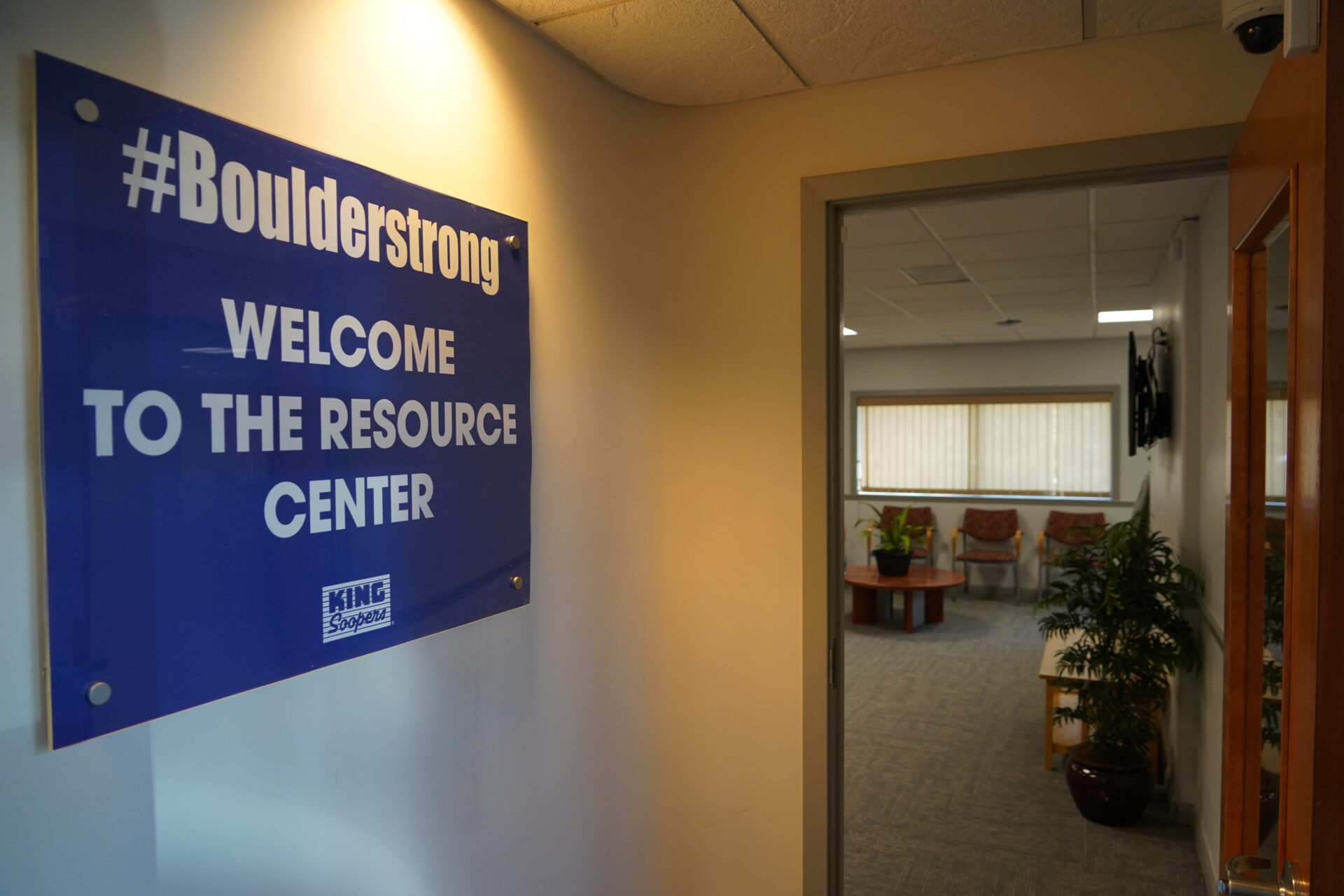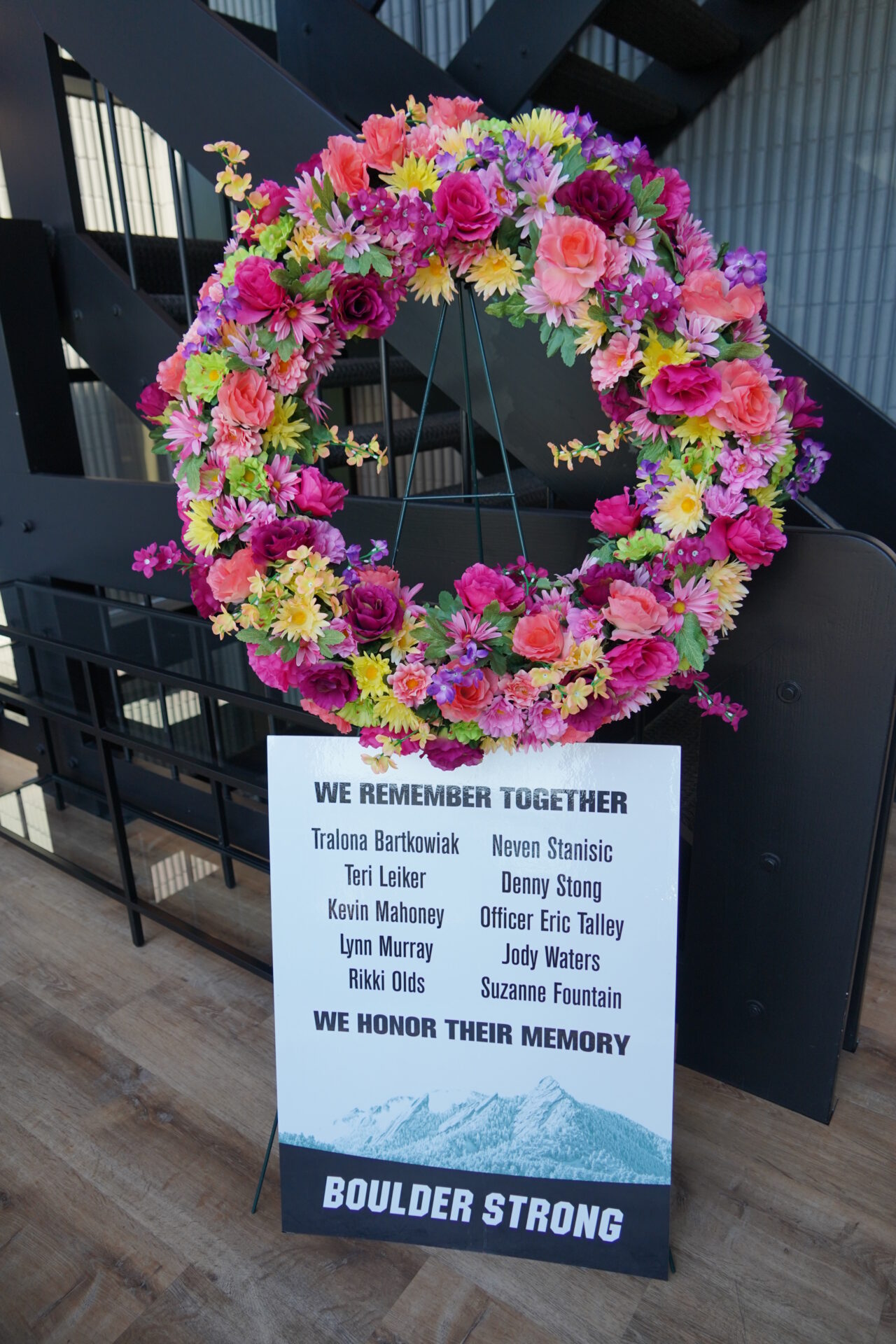New and Permanent #BoulderStrong Resource Center
The temporary #BoulderStrong Resource Center that opened in late March will soon be replaced by a permanent center that sponsors say will be better-suited to meet the evolving needs of Boulder residents.
The new center at 2935 Baseline Road officially opens on Saturday, June 19.
The new center will be managed by Mental Health Partners (MHP) and King Soopers, with numerous other organizations contributing funding to support operations.

The temporary center at 603 S. Broadway opened immediately after the tragedy and was never supposed to be a permanent facility.
“One issue we’ve had is people don’t want to go to the current location because it’s in the parking lot of where the March 22 incident happened – some people have difficulty even looking at that King Soopers store. Also, the new center is better-designed for long-term, one-on-one counseling services,” said Kevin Braney, MHP Incident Commander Boulder Table Mesa tragedy.
Although the resource center’s location is changing, the services will stay the same.
“We’re doing more with acupuncture, massage therapy and comfort dog therapy, which are more long-term healing services,” Braney said.

A safe space for victims of March 22nd King Soopers incident
He went on to say that the resource center “is a safe place where people who have experienced trauma can find hope and healing and develop resiliency skills that they will need literally for the rest of their lives. So, right now our focus is on and will continue to be on those folks most immediately impacted by the March 22 tragedy – the associates who were at work that day, the shoppers who were in the store, employees who were in the parking lot going to and from work, as well as other employees and shoppers in the Table Mesa area, and then also the families of the deceased.”
The new resource center’s location is also more convenient, Braney said.
“We have employees at that store who live all over,” Braney said. “They live in Louisville, they live in Lafayette and they live in north Boulder. We have people who were at that shopping center who don’t necessarily live in the Table Mesa neighborhood.”
Based on experience with resource centers in other cities, the #BoulderStrong Resource Center is expected to evolve into a broader community resource.
“This center is right on the bus route between a major residential apartment complex for the university and the main campus, so we envision this as potentially being a safe place for students who are experiencing issues,” Braney said. “We do know that over time it will evolve into a place that meets a lot of different needs.”
Committed to meeting the long-term needs of the community

One distinct need is maintaining long-term, trauma-based programs. As Braney said, “Healing is a long, long process.”
A Marjory Stoneman Douglas High School shooting survivor told the Associated Press that she tried to take her own life four times before finally seeking help.
Her comments came in a March 2019 article about two other Stoneman Douglas survivors who took their lives one year after the high school tragedy that killed 17 students.
The experience of Columbine High School survivor Heather Martin also brings the need for long-term care into sharp focus: Heather Martin, who is now 39, was barricaded in a classroom during the April 1999 Columbine massacre. In March 2021, Martin told the Reuters news service that she struggled for more than a decade before seeking counseling.
Thirteen years after Columbine, when 12 people were killed in the July 20, 2012 Aurora theater shooting, Martin and Columbine survivor Jen Hammer formed an Aurora survivor support group.
“We learned that 13 years later we were still struggling – there was a whole group of us who were still a mess,” Martin said.
Aurora recognized the need for long-term care early on, opening the Aurora Strong Resiliency Center in July 2013. It closed in mid-2019, with responsibility for service referrals shifting to the 7/20 Memorial Foundation.
“The city of Aurora and Aurora Mental Health were very, very supportive and they recognized that we loved that center and it was important to the survivors who kept going there,” said 7/20 foundation board member Heather Dearman. “They didn’t want survivors to feel like they were saying, ‘Oh, you should be healed now, so we’re closing it down.’ That’s why they closed it in a nice, transitional way.”
Aurora’s continuing support underscores the fact that “it’s important for people to have access to long-term services because things will trigger people, even 10 years later,” Dearman said.
The temporary #Boulder Strong Resource Center at 603 S. Broadway officially closes on June 18.
